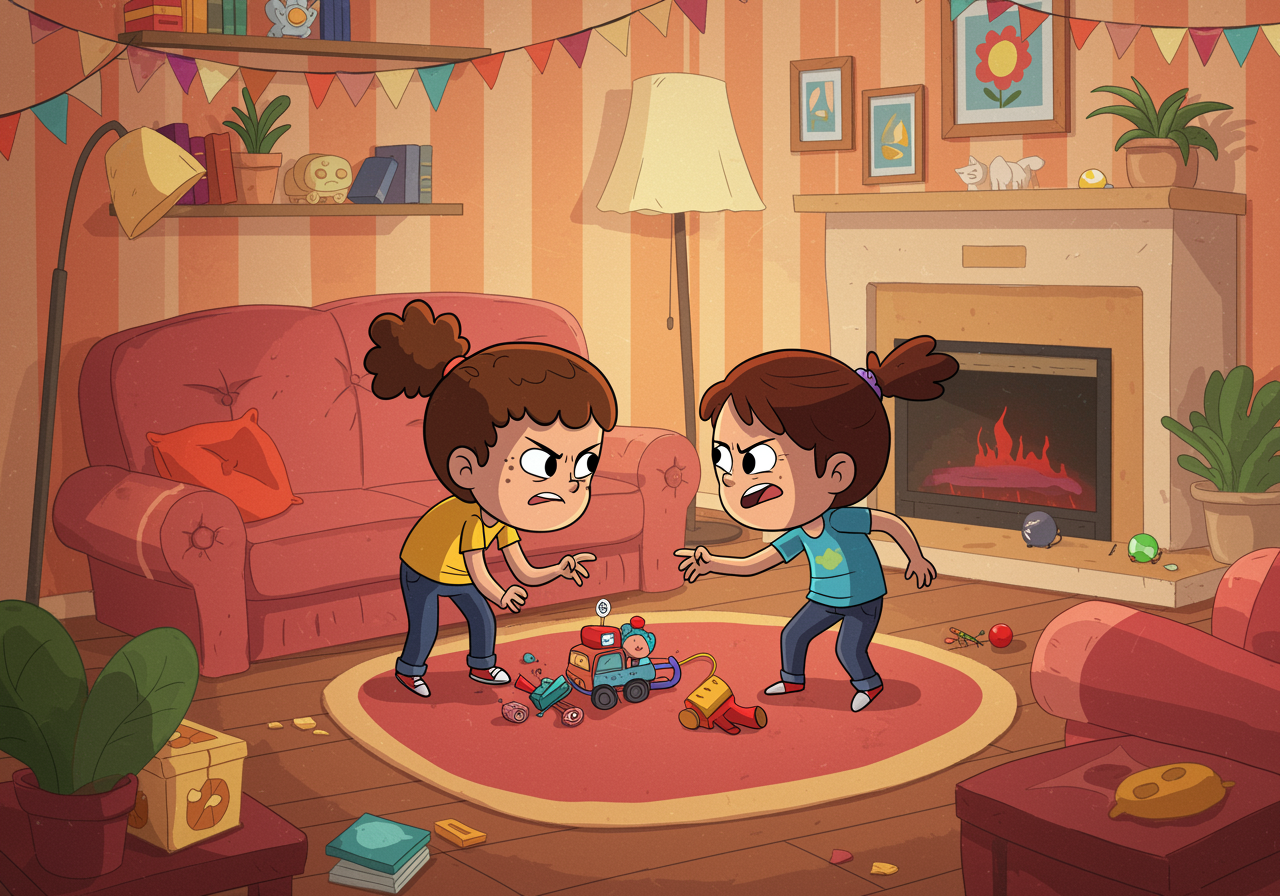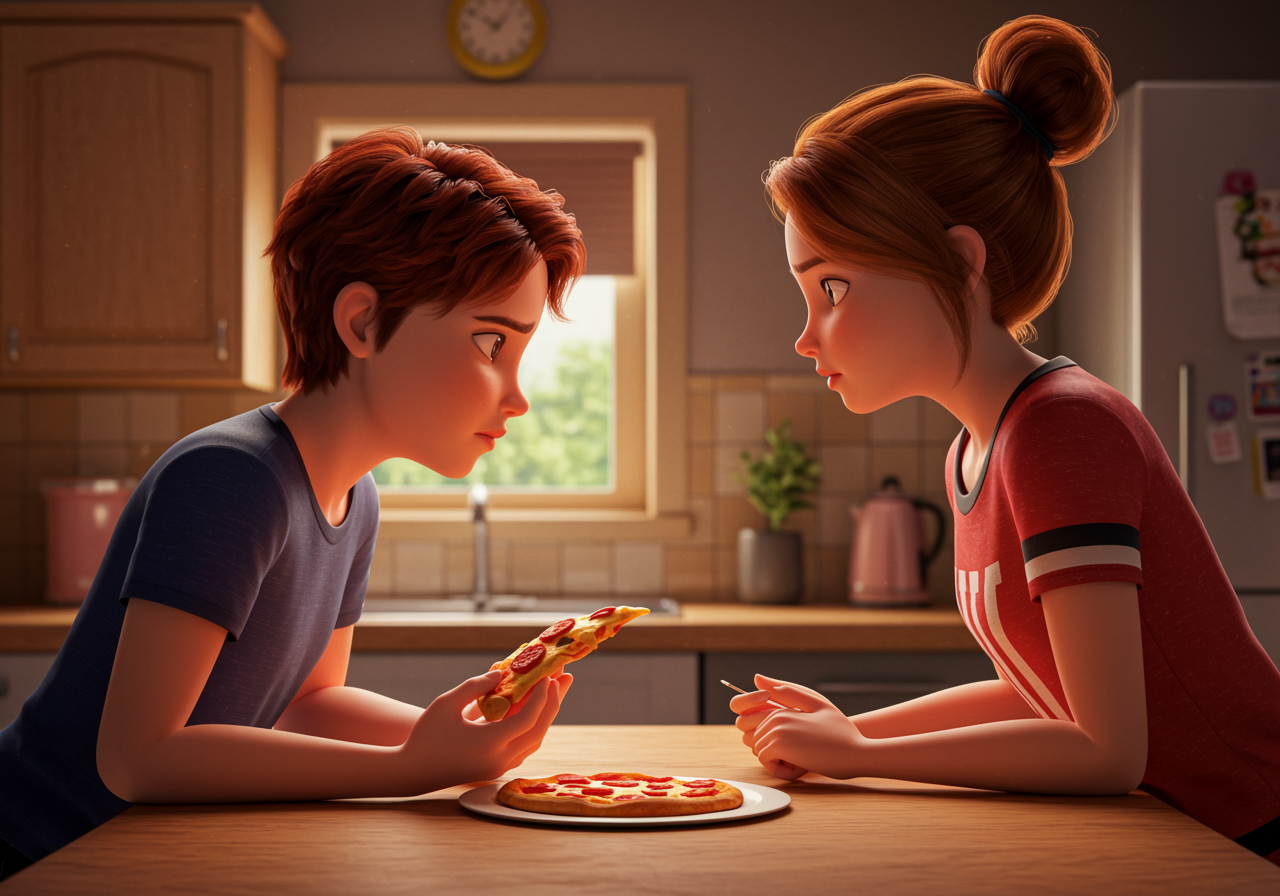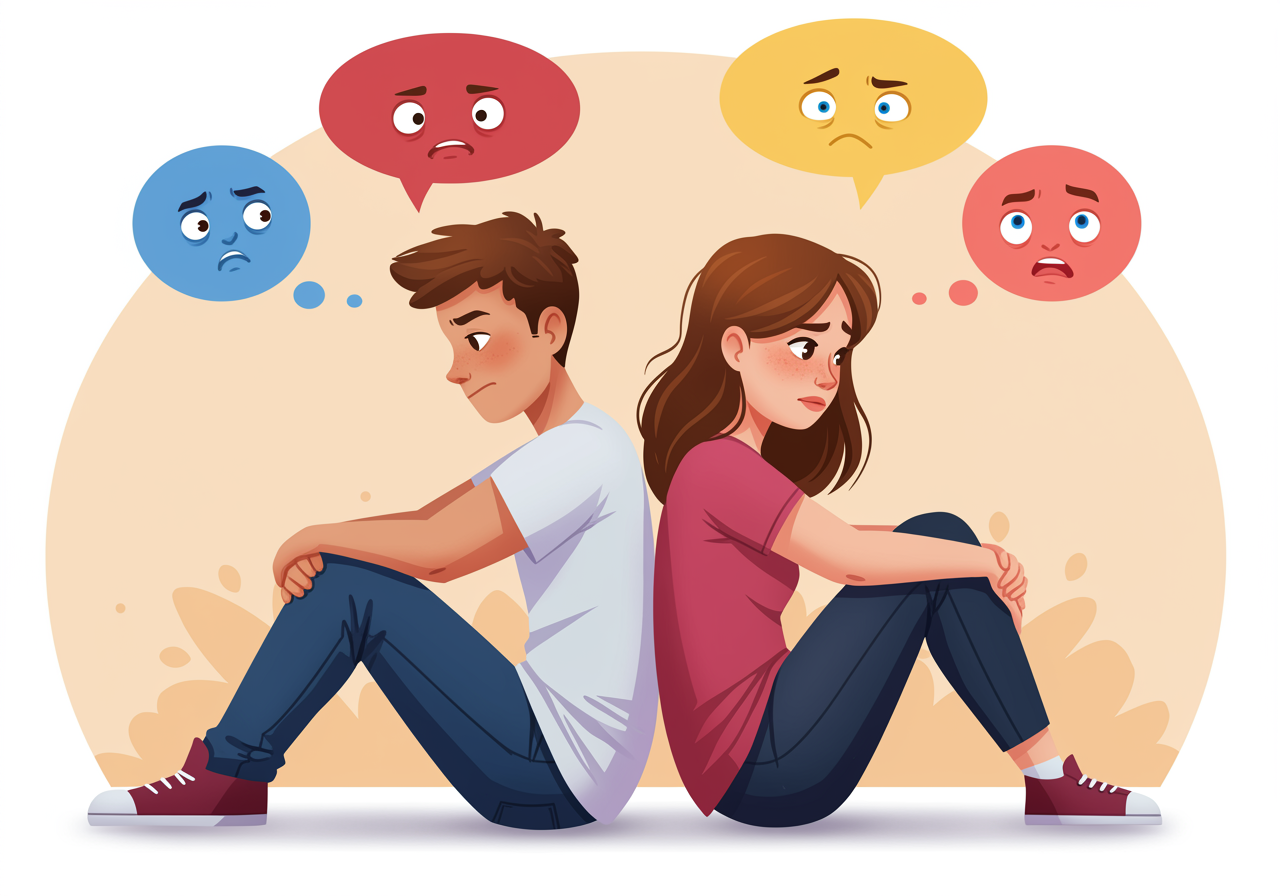Why Do Siblings Fight? The Cool Science Behind Family Drama
Discover the surprising reasons behind sibling squabbles and unlock better family vibes
Ever wonder why siblings can go from best friends to worst enemies in 0.3 seconds? There’s actually fascinating science behind it all!
Overview
Think about it – siblings share the same house, same parents, and often the same DNA, yet they can clash like opposing magnets! Understanding why siblings fight isn't just about stopping arguments (though that's a nice bonus). It's about unlocking the secret code to better family relationships. When we understand the science behind sibling rivalry – from brain development to competition for resources – we can transform those daily battles into opportunities for growth, empathy, and stronger family bonds.

Understand in 30 Seconds
Get up to speed quickly
- Your Brain is Still Under Construction: Teen brains are literally rewiring themselves, making emotional control and impulse management extra challenging. That's why siblings can explode over seemingly tiny things!
- Competition is Hardwired: Humans evolved to compete for resources and attention. Sibling rivalry is actually your ancient survival instincts working overtime in modern family life.
- Identity Building Mode: Teens are figuring out who they are, and sometimes that means pushing against siblings to establish their unique identity and independence.
- Stress Makes Everything Worse: When families are stressed (school, work, life), our patience tanks and our fight-or-flight responses get triggered more easily, leading to more sibling conflicts.
Real Life Scenario
Situations you can relate to
Imagine you and your sibling are both hungry and there's only one piece of leftover pizza. Your brother grabs it first, and suddenly you're FURIOUS – way more mad than pizza should make anyone! What's really happening? Your brain's ancient 'survival mode' just kicked in, treating that pizza like a scarce resource your ancestors had to fight over. Add in teenage hormones, a long day at school, and the fact that your brain's 'think before you react' center won't be fully developed until you're 25, and BAM – pizza becomes World War III. But here's the cool part: once you understand this brain science, you can actually pause and think, 'Wait, is this really about pizza, or am I just hangry and my caveman brain is taking over?'

Role Play
Spark a conversation with “what if” scenarios
What if you could read your sibling's mind during an argument?
- Role play: Take turns being 'mind readers' – one person acts out a frustrated sibling, while the other guesses what they might really be feeling underneath the anger (tired, stressed, left out, etc.).
What if sibling arguments came with warning labels like medications?
- Role play: Create funny 'warning labels' for common family situations: 'Caution: Sharing TV remote may cause temporary insanity' or 'Side effects of borrowing clothes without asking may include volcanic eruptions.'
What if you were a family conflict detective?
- Role play: Pick a recent sibling argument and investigate it together – what were the 'clues' that led to the fight? Was someone hungry, tired, or stressed about something else entirely?
FAQs
Frequently asked questions people want to know
Is it normal for siblings to fight a lot?
Totally normal! Research shows siblings argue about 3-5 times per hour when they're together. It's actually how they learn negotiation, boundaries, and conflict resolution.
Why do I get along great with friends but fight with my sibling?
You choose your friends and are on your 'best behavior' with them. With siblings, you're comfortable enough to show your real feelings – both good and bad!
Will my sibling and I ever stop fighting?
Most siblings become much closer as adults! The arguing usually peaks in teen years and decreases as your brains finish developing and you gain more independence.
Examples in the Wild
See how this works day to day
- Research from Cambridge University found that sibling conflict can actually improve children's emotional intelligence and problem-solving skills when handled constructively. (Cambridge University Psychology Department)
- A 2023 study showed that families who discuss the 'why' behind sibling fights see a 40% reduction in aggressive conflicts within 6 months. (Journal of Family Psychology)
- The teenage brain's prefrontal cortex (responsible for impulse control) doesn't fully mature until age 25, explaining why teen siblings often react emotionally first. (National Institute of Mental Health)
- Successful adult siblings often credit their childhood conflicts with teaching them valuable negotiation and compromise skills they use in careers and relationships. (American Psychological Association)
In Summary
What you should know before you start
- Sibling fights are normal and actually serve important developmental purposes
- Understanding the science behind conflicts helps families respond with empathy instead of just punishment
- Teen brains are still developing, making emotional regulation extra challenging
- Most sibling relationships improve dramatically as kids become adults and gain perspective
Pro-tip for Parents
You got this!
When siblings are fighting, resist the urge to immediately jump in with 'Stop fighting!' Instead, try saying something like, 'I see two people who are really frustrated right now. Help me understand what's really going on.' This shifts the focus from blame to problem-solving and teaches kids to identify their underlying emotions. Remember, you're not just stopping a fight – you're teaching lifelong emotional intelligence skills.

Keep an Eye Out For
Find these examples in everyday life
- Notice family stress levels during busy periods (exams, holidays, schedule changes) and how they affect sibling dynamics
- Watch for news stories about conflict resolution or emotional intelligence that you can discuss together
- Pay attention to how your kids handle disagreements with friends versus siblings – it's a great conversation starter about different relationship dynamics
Explore Beyond
Look up these related research topics
- How birth order affects personality and family dynamics
- The science of emotions and emotional intelligence
- Conflict resolution skills for teens and adults
- How stress affects the teenage brain and behavior
- The psychology of competition and cooperation in families